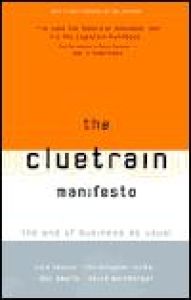
The Cluetrain Manifesto
The End of Business as Usual
Read or listen offline
Recommendation
The Cluetrain Manifesto was one of the seminal books of the dot.com bubble era, but reading it now is like waking with a hangover and looking at all of the empty bottles, each of which seemed like a great idea at the time. The Internet changed everything, all right. Those who can bite back the irony long enough to see the big picture and keep reading will find some valuable practical advice on using the now-not-so-new-technology of the Web to do business more effectively. getAbstract.com recommends this pivotal book for the sake of your sense of perspective (or to give you a critically necessary background if you are too young to remember when Amazon was just a river.)
Summary
About the Authors
Rick Levine is co-founder of WordofMouth.com and a former web architect for Sun Microsystems’ Java Software group. Christopher Locke publishes Entropy Gradient Reversals and has written for Forbes, Internet World, Information Week and The Industry Standard. Doc Searls is Senior Editor of Linux Journal and co-founder of a Silicon Valley advertising agency. David Weinberger is editor of JOHO (Journal of the Hyperlinked Organization) and has written for Wired, Information Week and The New York Times.

















Comment on this summary or Iniciar a Discussão